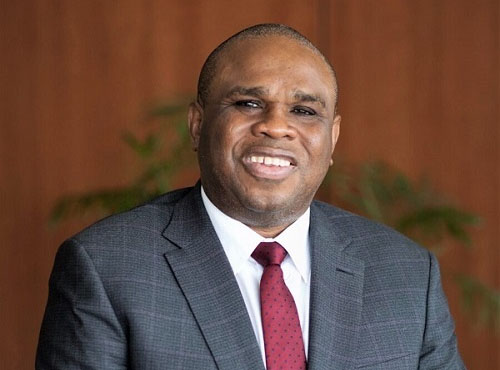Professor Benedict Oramah, President of Afreximbank
Massive capital outflows from Africa were recorded in the first quarter of 2020, following the outbreak of the Covid-19 pandemic, according to a recent African Trade Finance Survey Report released by the African Export-Import Bank (Afreximbank).
The report was released in collaboration with the United Nations Economic Commission for Africa (ECA), the African Development Bank (AfDB) and Making Finance Work for Africa Partnership (MFW4A).
The first of its kind, the report surveyed 185 banks from across Africa, representing more than 58% of total assets held by African banks providing a better understanding of the trade finance landscape across Africa and how it has evolved during the Covid-19 pandemic.
President of Afreximbank, Professor Benedict Oramah, highlighted how the tightening global financial conditions triggered massive capital outflows from Africa, exceeding $5 billion in the first quarter of 2020.
“These massive capital outflows strained African banks, many of which recorded sharp drops in their net foreign assets. This further exacerbated liquidity constraints and undermined the capacity of banks to finance African trade”, said Professor Oramah.
He said as a result of the pandemic and inherent tightening financing conditions, heightening balance of payment pressures and liquidity constraints, the supply of trade finance was affected between January and April 2020, the period covered by the survey.
According to the report, the number of correspondent banking relationships fell across the region, and the rejection of L/C requests increased, with about 38 per cdent of local/privately-owned banks and 30per cent of foreign banks reporting an increase in rejection rates, respectively.
Executive Secretary at the ECA, Dr Vera Songwe, commended Afreximbank for the counter-cyclical measures it took to help countries deal with the economic and health impacts of the Covid-19 pandemic.
“The Bank has also played a major role in putting together a $2 billion facility to help African member states purchase up to 400 million doses of the Covid-19 vaccines”, she added.
Dr Songwe also urged African leaders, especially Central Bank Governors and Ministers of Finance and other development partners to further support institutions such as Afreximbank through capital increases as such banks can leverage this capital five or six times and deploy more resources towards Africa’s recovery.
The report highlighted the role trade finance can play in overcoming the social and economic fallout of the Covid-19 pandemic to quicken the process of economic recovery through trade and investment growth.
The report pointed out that African trade amounts to $1,077 billion but that banks intermediate $417 billion of this, approximately 40 per cent, whilst the global average is 80 per cent.
Senior Vice Chairman for Africa at Standard Chartered, Bola Adesola, stressed the need to increase businesses on the continent, to help drive trade both extra- and intra-African trade and banks’ intermediation.
The African Continental Free Trade Agreement (AfCFTA), she added, can provide a platform to help drive greater businesses.
Executive Vice President, Business Development and Corporate Banking at Afreximbank, Amr Kamel, highlighted the role of Development Finance Institutions during downturns, pointing out that “Afreximbank’s Pandemic Trade Impact Mitigation Facility (PATIMFA) has provided timely support to banks, helping to clear payments falling due and avert payment defaults.”
He also shared some of the key initiatives the Bank is pushing through to address the challenges of liquidity constraints and boost African trade such as the Pan-African Payment and Settlement System (PAPSS) and Afreximbank Trade Finance and Trade Facilitation (AFTRAF) programme to increase the provision of correspondent banking services to African banks.
The report made numerous recommendations. These include: a greater engagement between central banks and industry; push for increased digitalisation and take up of technologies; and better data, which will help better understand and price risk.
Chief Economist at Afreximbank, Dr Hippolyte Fofack, in his closing remarks, reiterated the need to sustainably grow the supply of trade finance across the region. “Trade finance is the lifeblood of commerce and will play a key role in the recovery and structural transformation of African economies to better prepare the region to future global crises”, he added.
By Jamila Akweley Okertchiri

